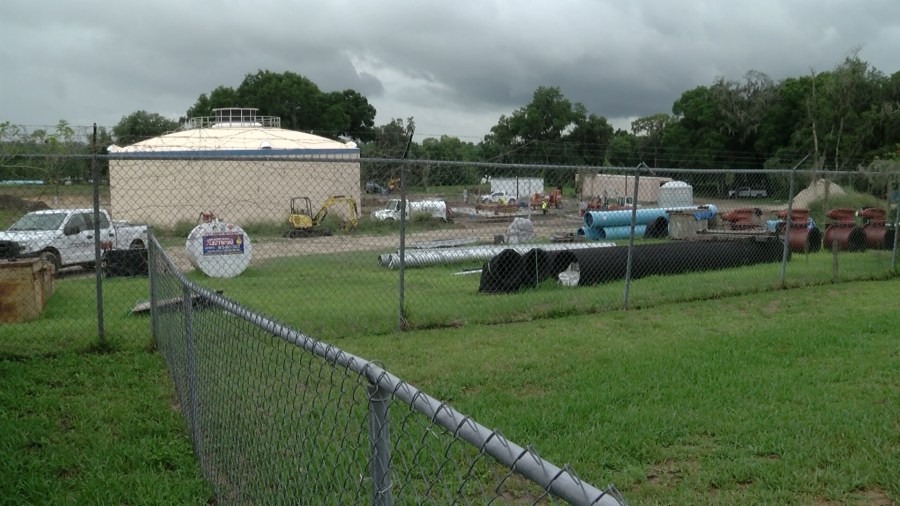POLK COUNTY, Fla. (WFLA) — As the population climbs towards one million and water resources become strained, Polk County officials approved a pilot project to study whether wastewater treatment plants can produce drinkable water.
“We are not running out of water,” said Tamara Richardson, Polk County utilities director. “We’re running out of cheap water.”
According to Richardson, the county is having to rethink its water sources due to new modeling and more people, especially in the northeast region.
“It is booming,” she said. “We really see it during times like, in April and May when it’s hot and people are starting to water, and it’s not raining yet. We can really see the strain on our water and reclaim water systems.”
That’s why the county is looking into using treated wastewater for drinking water.
It’s already used for irrigation.
“It’s going on your lawns where your children play,” Richardson said. “It’s very good quality water. There’s nothing wrong with it. There’s nothing harmful.”
If the reuse water is used for drinking in the future, it will be treated to an even higher standard.

To find out how best to do that, the county commission recently approved a $1.5 million pilot study to take place on the site of the new Cherry Hill Water Production Facility in Lakeland, which is still under construction.
That facility opens in July.
The pilot study will start in a new building on the site next March and take 14 months.
The treated wastewater would not be provided to customers as drinking water for at least 8-10 years, after rigorous testing and governmental approval, Richardson said.
“You’re going to have to get over the ‘yuck factor’ because at some point we will need that water, and you will need to drink it,” said Commissioner Bill Braswell. “Look where your water comes from anyway: it’s a hole in the ground. It goes through all the dirt and the clay and all the bugs and whatever else, and it gets down in the aquifer, and then we drink it.”
Braswell said managing growth is the main mission of the county board of commissioners.
He is opposed to a proposed one cent sales tax aimed to widen roads and lessen traffic congestion.
“The ultimate solution would be a moratorium on residential building permits. If you want to slow people down moving here, don’t let them build houses. It’s just that simple,” he said.
Some water districts in Texas use direct potable reuse water.
There are currently direct potable reuse pilot projects in California, Arizona, New Mexico, Florida, Texas, Oregon and Virginia, according to the county.






